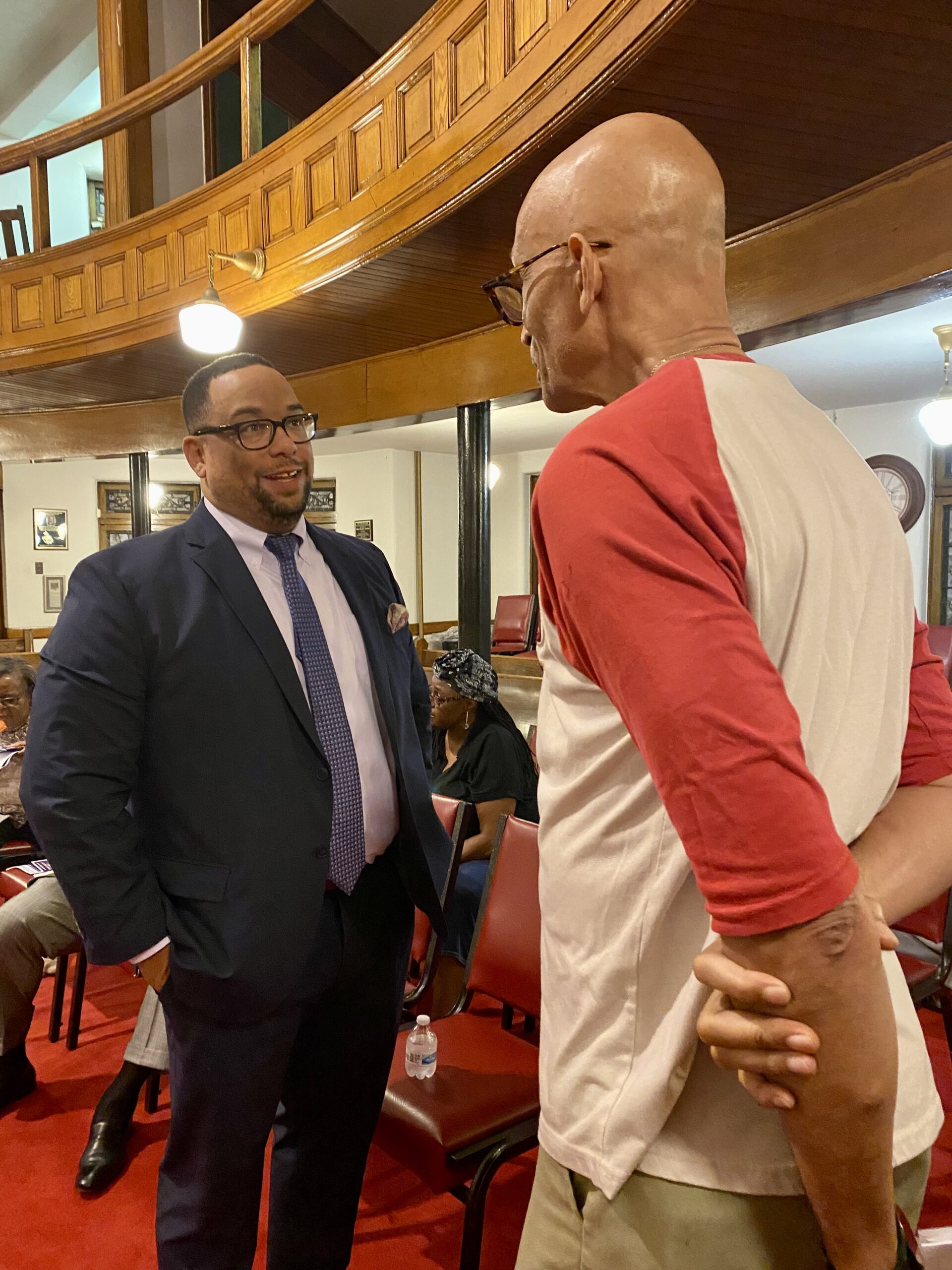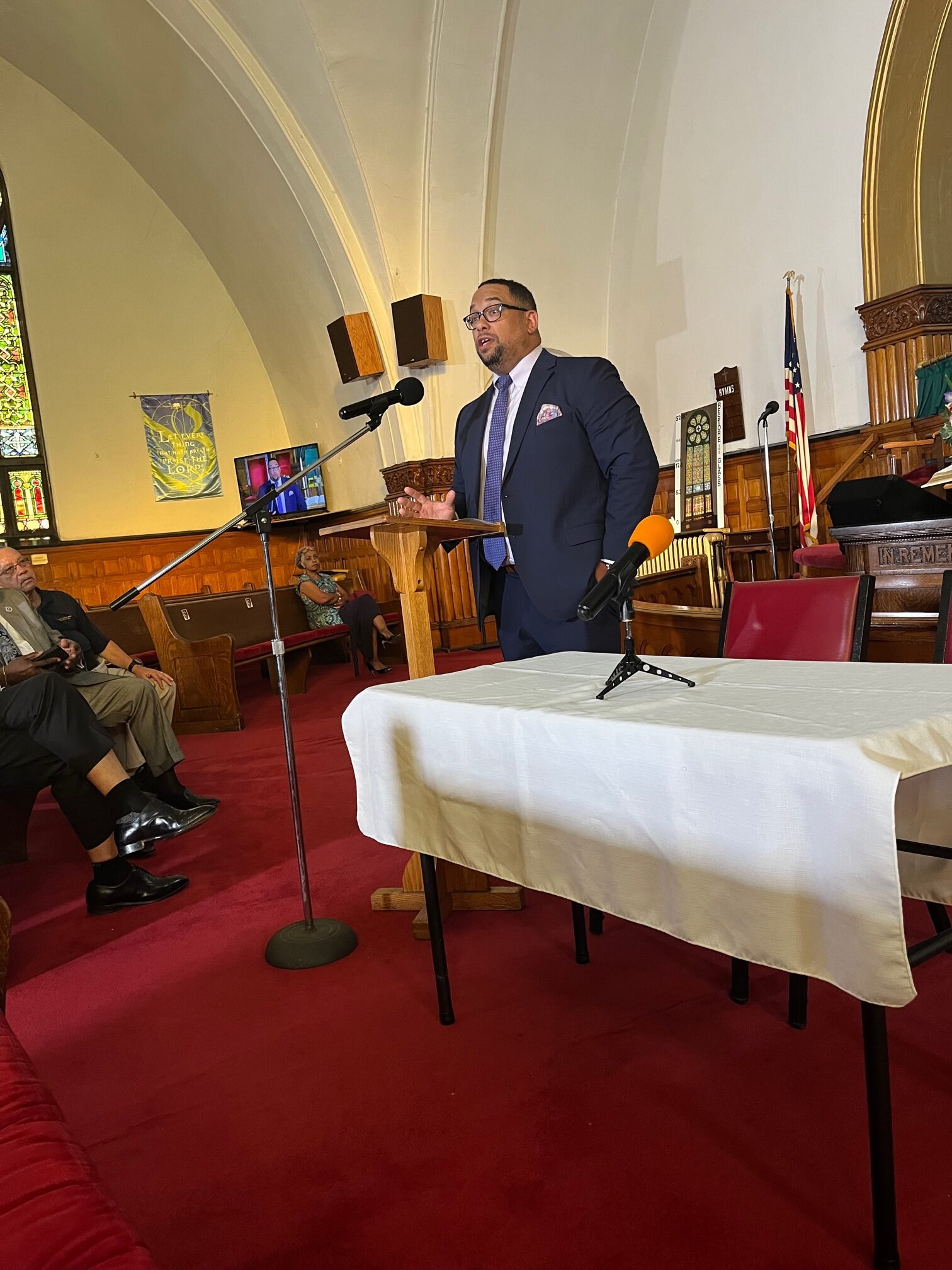DIANE POWELL, CENTER, SPEAKS ABOUT ALZHEIMER’S EDUCATION AT ST. JAMES AME CHURCH.
St. James AME Church in East Liberty played host in mid-October to an Alzheimer’s Health Forum, aimed at raising awareness about Alzheimer’s disease within the African American community, the New Pittsburgh Courier has learned. This significant event, held on the eve of the AME Ministers Conference, was a collaborative effort between Community and Family Builders, the AME 3rd District Office, and the Alzheimer’s Association Greater Pennsylvania Chapter.
The event featured an educational workshop led by Diane Powell, Director of Community and Family Builders, focusing on the “10 Warning Signs of Alzheimer’s.” Attendees had the opportunity to learn valuable information about recognizing early signs of the disease, understanding its impact, and seeking appropriate support and resources.

Clay Jacobs, Executive Director of the Alzheimer’s Association Greater Pennsylvania Chapter, delivered insightful remarks that shed light on the importance of Alzheimer’s awareness and the resources available to affected individuals and their families. His presentation underscored the significance of addressing Alzheimer’s within the African American community.
Presiding Elder, Bishop McCloud of the 3rd AME District, also offered his thoughts on the event, emphasizing the role of faith-based organizations in raising awareness and providing support to those affected by Alzheimer’s.

The event, which drew a diverse audience of more than 100 attendees both in person and online, was welcomed by Rev. Dr. James H. Harris, Senior Pastor of St. James AME Church. His opening remarks set a tone of unity and purpose, highlighting the importance of community involvement in addressing Alzheimer’s disease.
“Events like these are vital in our efforts to raise awareness about Alzheimer’s disease, especially within the African American community,” said Powell, in a release. “By understanding the warning signs and seeking early diagnosis and treatment, we can make a meaningful impact on the lives of those affected by this challenging condition.”
(Editor’s Note: For more information about Alzheimer’s awareness and available resources, please contact the Alzheimer’s Association 24/7 Helpline at 1-800-272-3900.)
